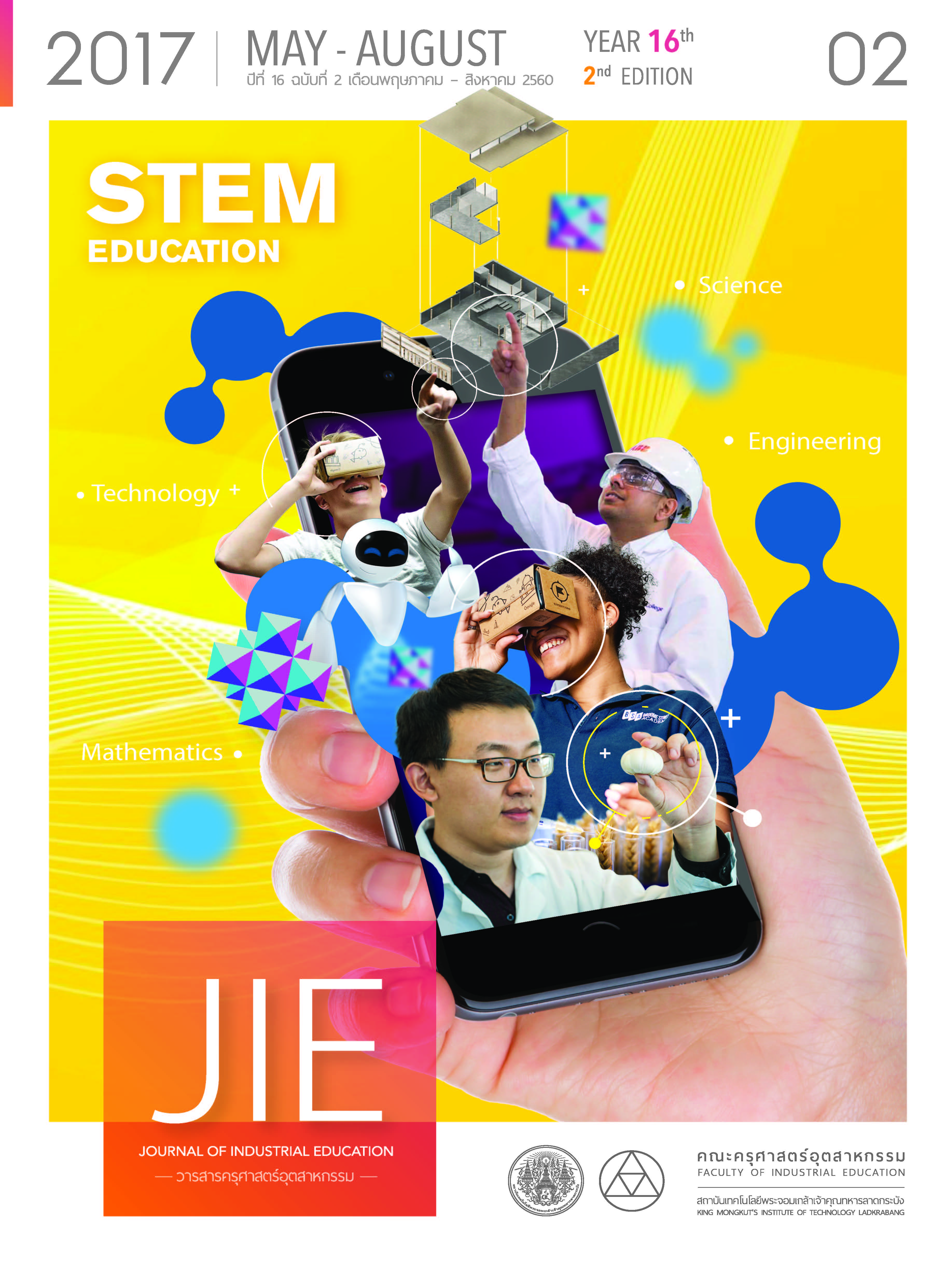21st CENTURY SKILLS FOR TECHNICAL AND VOCATIONAL STUDENTS IN THAILAND
Keywords:
21st Century Skills, Technical and Vocational Education, Science, Technology, Engineering, Mathematics (STEM), Problem-Solving, Communication, Collaboration, Critical Thinking, CreativityAbstract
Technical and vocational education in Thailand, people who are involved need to prepare their students to be ready to live and work in 21st Century. In order to help Technical and Vocational students succeed in their studies, as well as in contemporary thinking and practice, it is necessary to equip them with key knowledge and 21st Century Skills which include: (1) science, technology, engineering and mathematics (STEM) skills; (2) problem solving; and (3) 4 Cs skills; critical thinking, communication, collaboration and creativity.
References
[2] Association for Career and Technical Education [ACTE]. 2014. CTE today! Retrieved March 16, 2017, from https://www.acteonline.org/CTETodayOct14
[3] Regional TVET Conference 2014, Jakarta, Indonesia (2014). Ensuring TVET quality. Retrieved March 16 2017 from https://www.regional-tvet-conference-indonesia.org/en/article/67.ensuring-tvet- quality.html
[4] Joseph Bishop. 2017. Partnership for 21st Century Skills (P21). Director of Strategic Initiatives, P21. Retrieved April 1 2017, from www.imls.gov/assets/1/AssetManager/Bishop%20Pre-Con%202.pdf.
[5] Jongjit R. Reena T. 2015. Challenges in Producing Thai Skilled Labor for AEC Job Market. Population and Social Diversity in Thailand 2015. Retrieved from https://www.ms.ipsr.mahidol.ac.th/ ConferenceXI/Download/Book/447-IPSR-Conference-A09-fulltext.pdf (March 15, 2017)
[6] UNESCO Bangkok (2011). Higher education and technical and vocational education and training. Retrieved March 20, 2017, from https://www.unescobkk.org/education/resources/resources/education-system- profiles/thailand/higher-tvet/
[7] Dana L. Zeidler. 2016. STEM education: A deficit framework for the twenty first century? A sociocultural socioscientific response. Cult Stud of Sci Educ, 11, p. 11–26.
[8] National Academy of Sciences [NAE] (2011). Successful K-12 STEM Education: Identifying Effective Approaches in Science, Technology, Engineering, and Mathematics. Washington, DC: National Academies Press.
[9] Bybee, R.W. (2010). Advancing STEM education: A 2020 vision. The Technology and Engineering Teacher, 70(1), p. 30-35.
[10] Adams, S. (2014). The 10 skills employers most want in 2015 graduates. Forbes. Retrieved March 20, 2017, from https://www.forbes.com/sites/susanadams/2014/11/12/the-10-skills- employers-most-want-in-2015-graduates/
[11] Buck Institute for Education [BIE] (n.d.). Why project based learning (PBL)?. Retrieved March 20, 2017, from, https://bie.org/about/why_pbl
[12] S. P. Tayal. 2013. Engineering Design Process. International Journal of Computer Science and Communication Engineering. IJCSCE Special issue on “Recent Advances in Engineering & Technology” NCRAET. pp. 1-5.
[13] National Research Council – NRC (2012). A Framework for K–12 Science Education. Retrieved March 21 2017 from https://www.nap.edu/catalog.php?record_id=13165
[14] Herrmann, E. (2015). The 4 C’s of 21st century learning for ELLs: Critical thinking. Retrieved March 21, 2017, from https://exclusive.multibriefs.com/content/the-4-cs-of-21st-century-learning-for-ells- critical-thinking/education
[15] Thoughtful Learning (n.d.). What are learning skills?. Retrieved March 21, 2017, from https://thoughtfullearning.com/resources/what-are-learning-skills
[16] Adirek Y., Namon J. and Panita W. 2012. Teaching and Learning in a Virtual Classroom for Higher Education Level. Journal of Industrial Education, 11(1), p. 75-81.
Downloads
Published
How to Cite
Issue
Section
License
"The opinions and contents including the words in papers are responsibility by the authors."
"ข้อคิดเห็น เนื้อหา รวมทั้งการใช้ภาษาในบทความถือเป็นความรับผิดชอบของผู้เขียน"



